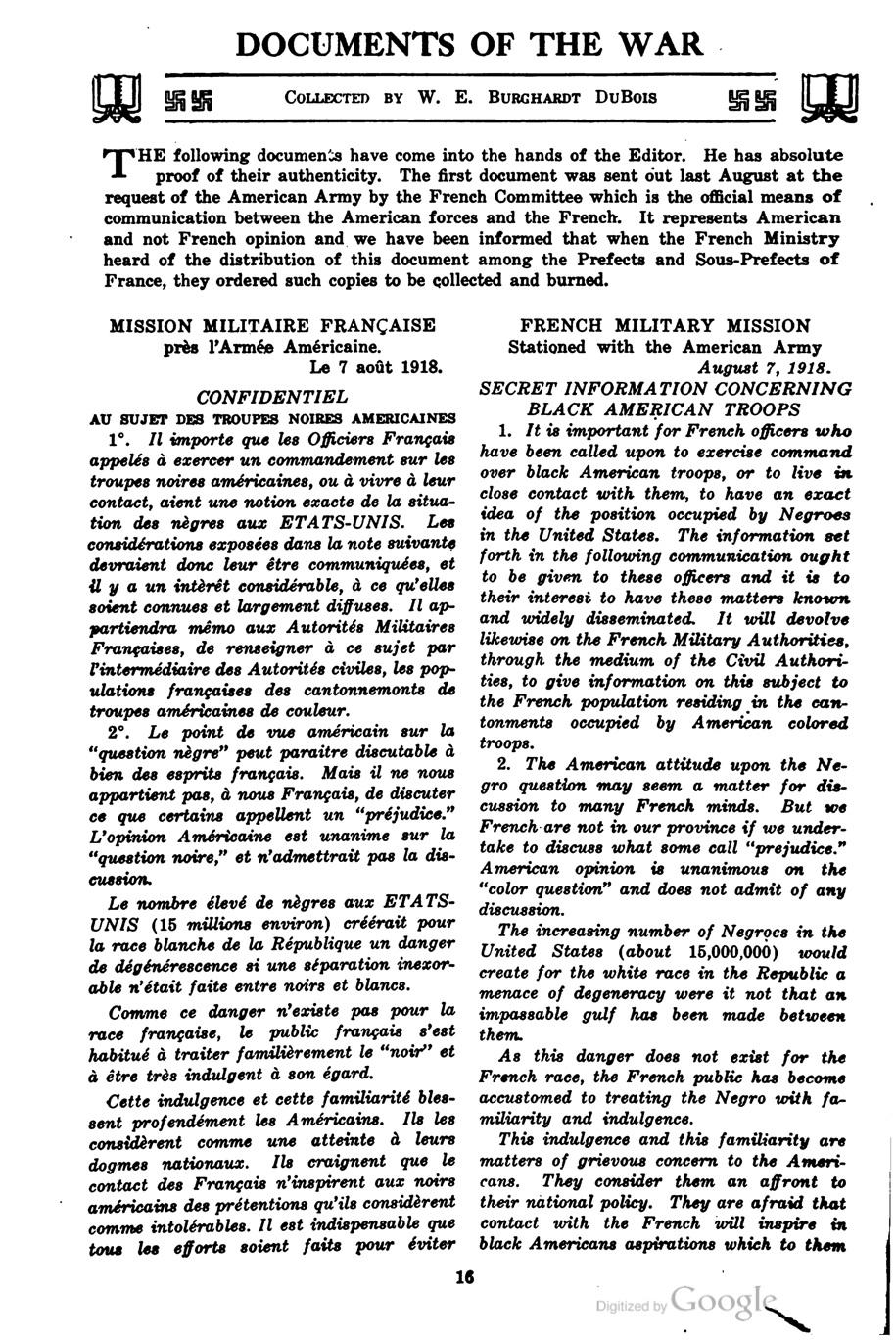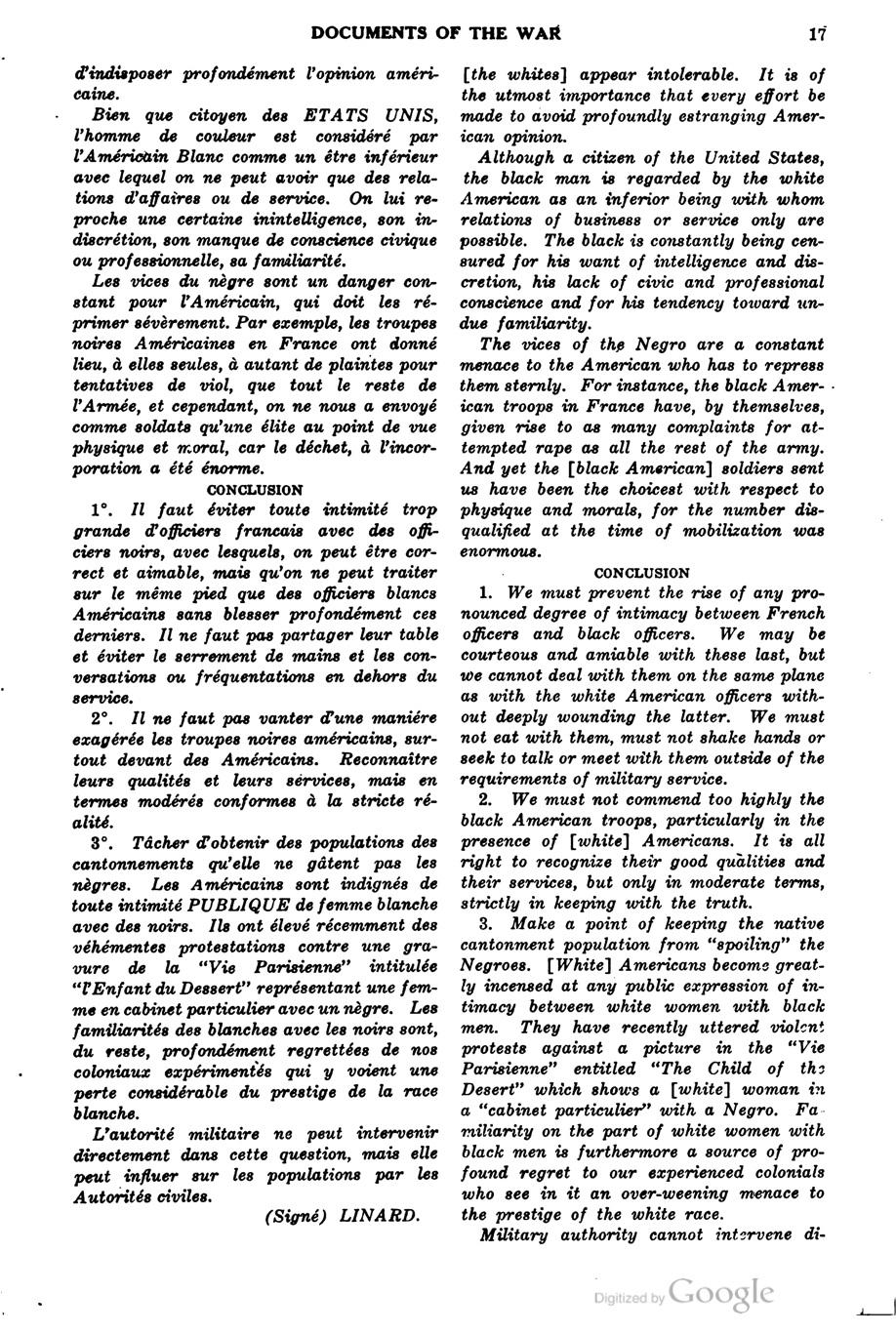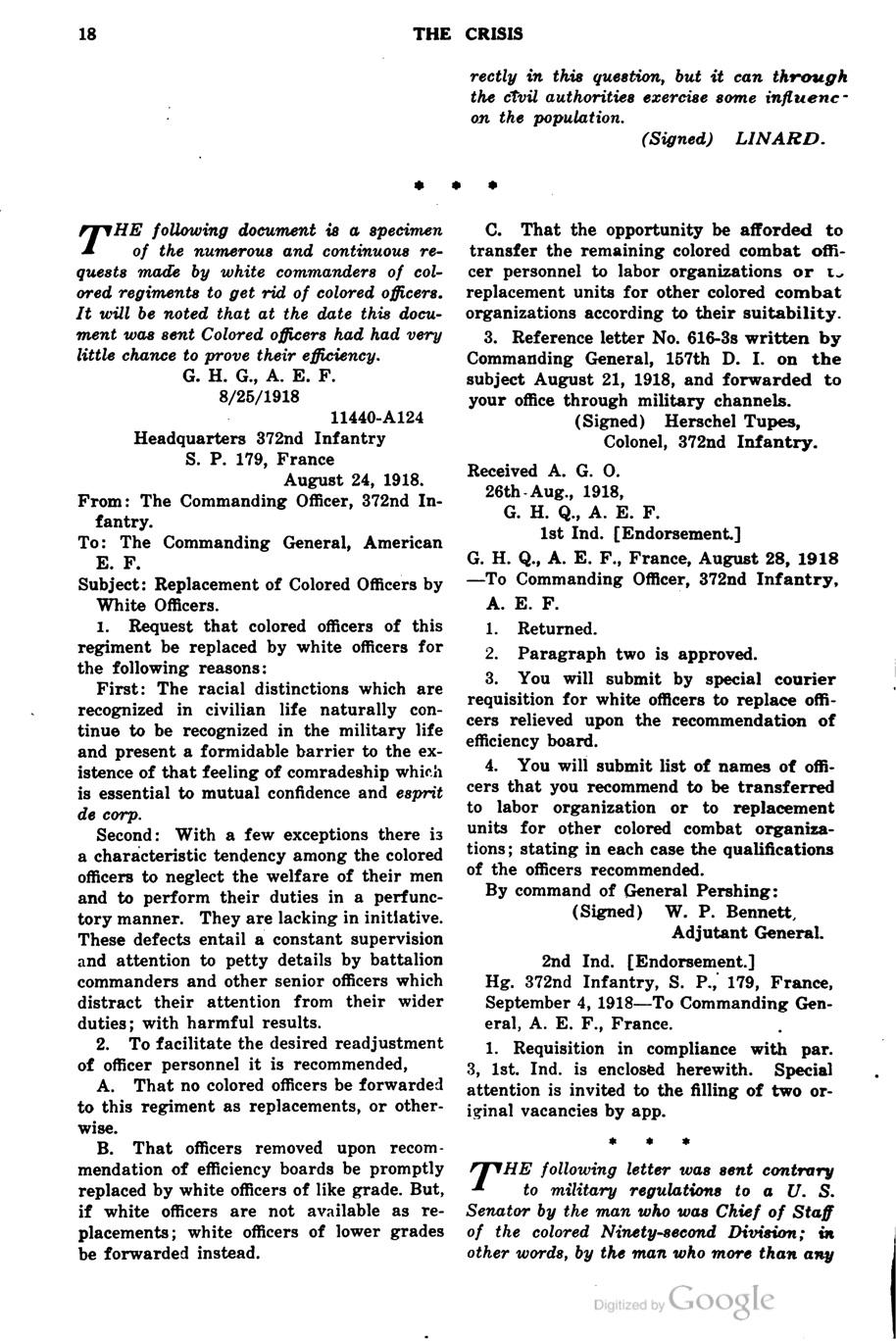In this memo published by W.E.B. DuBois in the NAACP’s magazine the Crisis in 1919, a French liaison to the American military in France counsels French officers on the proper treatment of black American troops. The memo, signed by Colonel J.L.A. Linard of the American Expeditionary Force Headquarters, voices white American concerns that black soldiers and officers working with the French were being treated with too much “familiarity and indulgence.”
Some units of black American soldiers stationed in France during the war fought alongside French troops. The French people were generally welcoming, mingling with them socially. The difference between these conditions and Jim Crow segregation in the United States alarmed white American officers and soldiers, who tried in a number of ways to reinstitute racial boundaries, putting up “Whites Only” signage in military bases, and imposing curfews and other regulations meant to keep black soldiers in line.
During the war, racist rumors that black soldiers were underperforming, and that they were a danger to French women, abounded. The investigation that DuBois mounted was meant, in part, to disprove these allegations. Historian Cary D. Wintz writes that DuBois “concluded the blacks were regularly subjected to racist white officers and noncommissioned officers, and that these white officers often provided poor leadership and sent poorly equipped troops into battle, then covered up their mistakes by placing blame on their black troops.”
Wintz adds that Robert Russa Moton, then the second head of the Tuskegee Institute, went to France in 1918 to investigate how black troops were faring, and “found that the rape charges [against black soldiers] were seriously exaggerated, as well as the accusations of cowardice among black units.”
Linard’s memo may not have been effective. Historian Richard Slotkin notes that the instructions “did not entirely succeed with the French”; “generals like [Henri] Gouraud continued to praise black units who served effectively and to award them the Croix de Guerre.” By the end of the war, 171 black American soldiers were awarded the French Legion of Honor.
The memo, as it appeared in the Crisis, is below. Check out the use of the swastika as decorative element—still common in a diversity of contexts in 1919.

Google Books

Google Books

Google Books